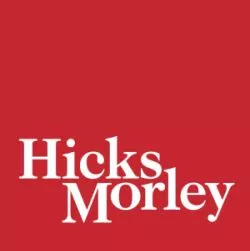On May 12, 2022, the Ontario Court of Appeal rendered its highly anticipated decision in the appeal of Taylor v Hanley Hospitality Inc. The lower court had considered the interaction between the Infectious Disease Emergency Leave Regulation(O. Reg. 228/20 or IDEL Regulation) made under the Employment Standards Act, 2000 (ESA) and a claim for constructive dismissal at common law (see our summary of that decision). The Court declined to deal with that issue as it found that the motion judge in the lower court made numerous errors under the Rules of Civil Procedure (Rules). It set aside the decision and remitted the matter back to the Superior Court of Justice to be determined by another judge.
By way of background, following the close of pleadings the employer had brought a motion under Rule 21.01(1)(a) of the Rules, which allows a motion "for the determination...of a question of law raised by a pleading."
Specifically, the employer sought a determination of whether the plaintiff's constructive dismissal action, arising from her temporary layoff in late March 2020, was precluded by virtue of s. 50.01 of the ESA (Emergency Leave: Declared Emergencies and Infectious Disease Emergencies) and O. Reg. 228/20 made under the ESA. The motion judge found that the motion was appropriate for determination under Rule 21.01(1) on the basis that it involved statutory interpretation and did not involve matters of credibility. The motion judge went on to take "judicial notice" of several important facts including, as a result of the COVID-19 pandemic, that the Ontario government required the closure of certain storefronts (like the employer) and limited them to take out and delivery, and that emergency measures required some employers to temporarily close their businesses or cut back their operations through no choice of their own. The motion judge also accepted allegations contained in the Statement of Defence as admitted facts because the plaintiff had not filed a reply pleading in response to the Statement of Defence. The motion judge then concluded that the IDEL Regulation precluded a constructive dismissal claim at common law. The plaintiff appealed.
The Court of Appeal granted the appeal and set aside the motion judge's order on the basis that this was not a proper case to decide a legal issue under Rule 21.01. The Court found that the motion judge incorrectly applied the well-established approach to be followed in motions under Rule 21.01(1)(a). Specifically, it held that the motion judge failed to assume that the allegations contained in the statement of claim were true, and incorrectly took statements in the Statement of Defence as true simply because there was no reply pleading (i.e. in circumstances where the claim itself had alleged facts directly contrary to those in the defence).
Furthermore, the Court found that the motion judge erred in taking judicial notice of significant and contested facts, including the legislative context and intent behind the Ontario government's emergency measures and their impact, absent any evidence advanced by the parties or agreement between the parties.
The Court of Appeal then concluded that the motion judge's interpretation of s. 50.1 of the ESA and O. Reg. 228/20 was tainted by analytical errors. As the Court found that the issue was not appropriate for a Rule 21 motion, it declined to provide an interpretation of s. 50.1 of the ESA and O. Reg. 228/20 and its potential impact on common law rights, because that would not resolve the fact-driven dispute between the parties.
The Court allowed the appeal, set aside the motion judge's order and remitted the issue, including the statutory interpretation issue, back to the Superior Court of Justice to be determined by another judge.
As a result of this decision, the substantive statutory interpretation issue underlying the motion was not addressed by the Court of Appeal. It remains a live issue for trial level courts in Ontario.
Originally Published 12 May 2022
The content of this article is intended to provide a general guide to the subject matter. Specialist advice should be sought about your specific circumstances.

